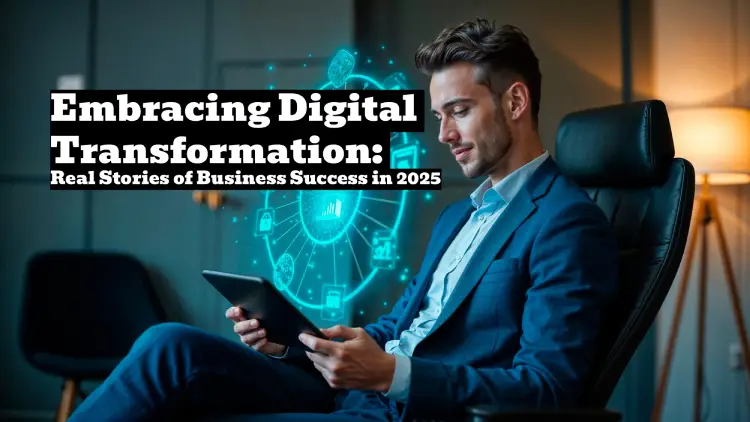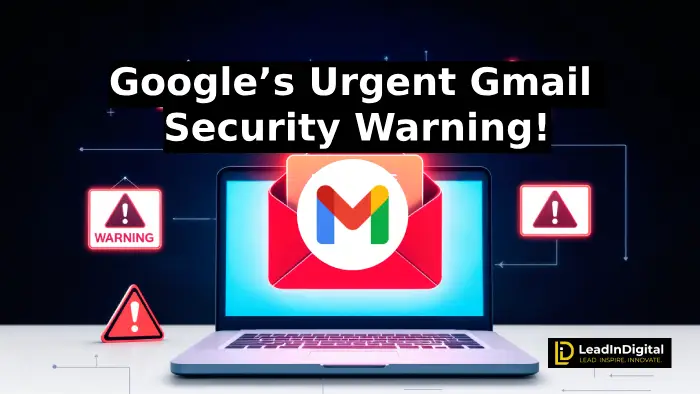
The end of 2025 is a call for boldness and caution regardless of one's current position or desired career path. Technology that is evolving more quickly than ever before, new regulations every month, remote teams, and unrelenting competition are all features of the entrepreneur's playground. The modern leader, however, is not superhuman; rather, they are real, flexible, compassionate, open, and prepared to use hardship to gain momentum.
Table: Major Trends Reshaping Leadership & Startup Success in 2025
| Trend/Challenge | Impact in 2025 | Success Strategy |
|---|---|---|
| Rapid Tech Change | High | Learn constantly, hire tech-savvy talent |
| Remote Workforce | High | Flexible hybrid policies, result-oriented |
| Funding Shifts | High | Mix revenue channels, plan for uncertainty |
| Compliance Maze | Very High | Automate, get legal counsel early |
| AI Adoption | Critical | Use wisely, integrate at core |
| Sustainability | Growing | Focus on social impact, green solutions |
| Team Building | Essential | Invest in culture, mental health, training |
| Customer Service | Make-or-break | Rapid support, CRM systems |
How Leadership Has Changed: The Human Side
Leaders in late 2025 are human problem solvers, team builders, and motivators in addition to visionaries and strategists. Rather than merely prescribing a vision, top founders and SME leaders define their role as helping others navigate uncertainty and change.
Leadership Qualities That Are Relatable:
Deep Listening: Being aware of teammates' priorities beyond procedures.
- Emotional Resilience: Adapting to setbacks and learning from them.
- Honest Communication: Setting goals, giving honest updates, and providing constructive criticism even when the news is difficult.
- Aligning the company's vision with profit and positive impact is known as purpose-first motivation.
Why Entrepreneurship Feels Different in 2025
The last few years have “reset” entrepreneurship. Founders now start with digital-first plans, expect global competition, and must master the art of change, all while staying grounded and relatable.
Key Shifts:
Digital Transformation isn’t optional. 89% of companies try, but most struggle with culture.
Funding is fragmented: traditional investors, crowdfunding, revenue-based financing, and subscriptions, each with tradeoffs.
Hybrid work is normal: Most founders never meet entire teams in person, but remote culture is vital to retain talent.
Success means balancing speed with stability: The right kind of growth matters as much as fast growth, to avoid premature scaling.
Top Challenges for Entrepreneurs & Leaders in End-of-2025
1. Managing Digital Transformation
AI, cloud computing, automation, and digital-first cultures are all growing at an accelerating rate. Organizations must adapt to these systems, which is difficult, expensive, and full of trial and error. Rather than technical limitations, cultural differences account for 84% of startup failures.
Tips:
Prioritize high ROI technology before expanding.
Incorporate digital thinking into your business's core values to prevent expensive last minute changes.
Teach collaboration and digital systems to everyone, not just engineers.
2. Securing Funding and Revenue Streams
The new normal is fragmented access to investment. Early-stage startups receive only 12–15% of global funding. In order to survive, many others must carefully manage their cash flow due to fluctuating revenues.
Table: Funding Channels for 2025 Startups
| Channel | Pros | Cons |
|---|---|---|
| Venture Capital | Large sums, expert advice | Hard to secure, high expectations |
| Crowdfunding | Aligns with user base | Takes marketing muscle, uncertain volume |
| Revenue Financing | Non-dilutive, flexible | Repayment kicks in quickly |
| Subscriptions | Recurring, reliable | Needs large user retention |
| Angel Investors | Flexible deals | Smaller ticket sizes |
3. Building and Retaining Talent
One of the most difficult challenges is finding employees who are skilled and flexible. More than 55% of startups don't have enough qualified employees. Workers place a high value on mental health and flexible work arrangements.
Talent-Building Strategies:
Provide opportunities for personal growth and development.
Encourage mental health with practical regulations and adaptability.
Establish ROWE (Result-Oriented Work Environments) where results, not hours, are measured.
To reach a larger talent pool, combine remote and hybrid options.
Impact Table: Modern Retention Strategies
| Strategy | Engagement | Turnover Reduced | Job Satisfaction |
|---|---|---|---|
| Growth Opportunities | +40% | Yes | High |
| Mental Health Support | +35% | Yes | High |
| Hybrid Options | +45% | Yes | Highest |
4. Standing Out in a Saturated Market
Being "unique" is difficult in a world where there are more than 500 million businesses operating online. Serving a niche, comprehending client problems, and combining stability and innovation rather than constant disruption are the keys to success.
Ways to Make Yourself Known:
Focus on sub niches that giants ignore.
Instead of focusing only on features, frame value should address actual pain.
Before expanding concepts to new markets, test and improve them.
5. Regulatory and Compliance Hurdles
Legal compliance and data privacy are issues for 60% of new businesses. Startups operating in multiple countries face three times as many regulations as those operating domestically.
Clever Steps:
Automate updates and tracking for compliance.
Don't wait for problems to arise; incorporate legal support into your business from the beginning.
Make sure security frameworks align with corporate objectives.
6. Adapting Financial Management
Flexible financial planning is necessary due to cash-flow volatility and economic unpredictability. Clear risk mitigation techniques and layered revenue models are essential for even small businesses.
Table of Financial Planning
| Revenue Channel | Stability | Setup Difficulty | Recurring Income |
|---|---|---|---|
| Product Sales | Medium | Medium | No |
| Subscriptions | High | High | Yes |
| Consulting | Medium | Low | Sometimes |
| Premium Services | Medium | High | Yes |
Crucial Strategies:
Budgets should be planned with risk triggers (e.g., drop in sales → cut costs).
To obtain better loan terms, cultivate relationships with stakeholders.
Diversify your revenue streams at all times; don't depend on just one.
7. Implementing New Technologies (Especially AI)
AI has an impact on everything, including team productivity and the speed at which founders launch. Early in 2025, 58% of global venture capital funding went to AI startups.
List of AI Implementations:
Automate repetitive tasks to accelerate development by 80%.
Utilize AI-powered CRM for data and customer service.
Recognize the risks to compliance and ethics when using AI.
8. Customer Service: Crucial for Early-Stage Survival
Modern consumers are characterized by high expectations and little patience. Speed and clarity account for more than 60% of customer service decisions.
Tips for Customer Service:
To manage expanding user bases, use CRM.
As your clientele grows, keep an eye on quality; don't let service deteriorate.
Invest in team training to solve problems quickly and effectively.
Actionable List: First Steps for Any Aspiring Entrepreneur
Make the "why" clear not just the company's objectives, but also your own personal mission.
Before building, conduct thorough market research to identify gaps, competitors, and actual needs.
Plan your digital transformation: choose the necessary technology without going over budget.
Create flexible work arrangements that allow for in office, remote, and hybrid work as needed.
Create a modular financial plan and identify feasible funding sources.
Put compliance requirements in writing and seek legal counsel as soon as possible.
Establish scalable hiring, onboarding, and talent retention processes.
Don't wait until you're overburdened; plan for customer service scaling..
Before branching out, test concepts in a sub niche.
Create support systems, such as peer networks, founders, and mentors.
Common Mistakes and How to Avoid Them
Mistake Table:
| Common Mistake | Impact | How to Avoid |
|---|---|---|
| Premature Scaling | Lost resources | Test before expanding, refine first |
| Ignoring Compliance | Legal issues | Automate and monitor regularly |
| Single Revenue Stream | Volatility | Diversify immediately |
| Hiring Too Fast | Weak team | Hire slowly, invest in culture |
| Poor Communication | Low engagement | Overcommunicate, set clear goals |
| Overlooking Mental Health | High turnover | Offer real support, flexible time |
In-Depth Look: Real Traits That Make Modern Leaders Succeed
The most prosperous entrepreneurs and company executives of today have a few key traits in common:
Adaptability: Accepting change as inevitable rather than threatening.
Empathy: Assisting the group during difficult changes and obstacles.
Transparency: Being forthright about the company's challenges, outcomes, and tactics.
Self-awareness: Seeking feedback continuously, learning new things constantly, and trusting your gut.
Purposeful optimism: concentrating on the good while acknowledging the dangers.
Sector Spotlight: Hot Areas for 2025 Entrepreneurs
Table: Startup Hot Sectors & What Drives Them
| Sector | Growth Forecast | Opportunity Type | Investor Interest |
|---|---|---|---|
| Artificial Intelligence | Explosive | Agentic AI, automation, cybersecurity | Highest (58% VC all funding) |
| GreenTech | Growing | Decarbonization, green energy, SaaS | High |
| HealthTech | Expanding | Telemedicine, diagnostics, monitors | High |
| EdTech | Booming | AI learning platforms, AR/VR, upskilling | High |
| FinTech | Strong | Digital finance, blockchain supply chain | Very high |
Your Path: Real Steps to Build a Leadership Journey That Lasts
Put Sustainability First: Your business shouldn't just create noise; it should solve a real problem.
Adopt technology sensibly: by choosing scalable core tools rather than chasing fads.
Develop an international mindset: Find diverse talent, localize your product, and research your competitors worldwide to cultivate an international mindset.
Remain agile: Change course quickly when necessary; don't be scared to challenge presumptions.
Priorities Health: Founder burnout is real, so put your health first. Incorporate relaxation, introspection, and purpose into the company's ethos.
Leadership & Entrepreneurship Skills for 2025: Checklist
Skill List:
AI and digital literacy
Making decisions based on data
Intercultural dialogue
Fundamentals of risk management and compliance
Modeling and financial planning
Management of remote work
Customer-focused approach
The capacity for emotional intelligence
Upskilling Table
| Skill | % Leaders Applying | Most Useful Tool |
|---|---|---|
| Digital/AI Literacy | 81% | Online courses |
| Risk Management | 74% | Automation tools |
| Financial Modeling | 65% | Budget software |
| Multicultural Comm | 58% | Peer mentoring |
| Customer Experience | 82% | CRM systems |
| Emotional Intelligence | 67% | Workshops, therapy |
Lists: Essential Reads, Tools, and Communities For New Founders
Books:
“The Lean Startup” by Eric Ries
“Zero to One” by Peter Thiel
“Leaders Eat Last” by Simon Sinek
Online Tools:
Notion, Trello (for workflow)
Stripe, QuickBooks (for finances)
Slack, Zoom (for remote teams)
HubSpot, Zendesk (for support/CRM)
Communities:
Indie Hackers
Y Combinator Startup School
Local Chamber of Commerce leadership groups
Women Who Code, Founder Institute
Final Thoughts: Humanizing Success
People will always come first in leadership and entrepreneurship in 2025. Regulations, funding, AI, and digital transformation are all actual challenges, but great leaders are characterized by their ability to empathize, persevere, and adapt. Whether in the tech industry or local retail, starting a business entails not only navigating uncharted territory but also bringing about change, jobs, and communities.
When you're prepared to start, start by gaining knowledge, posing inquiries, and establishing sincere relationships. Being present, paying attention, and developing alongside others at every stage is more important than being flawless or fearless.




